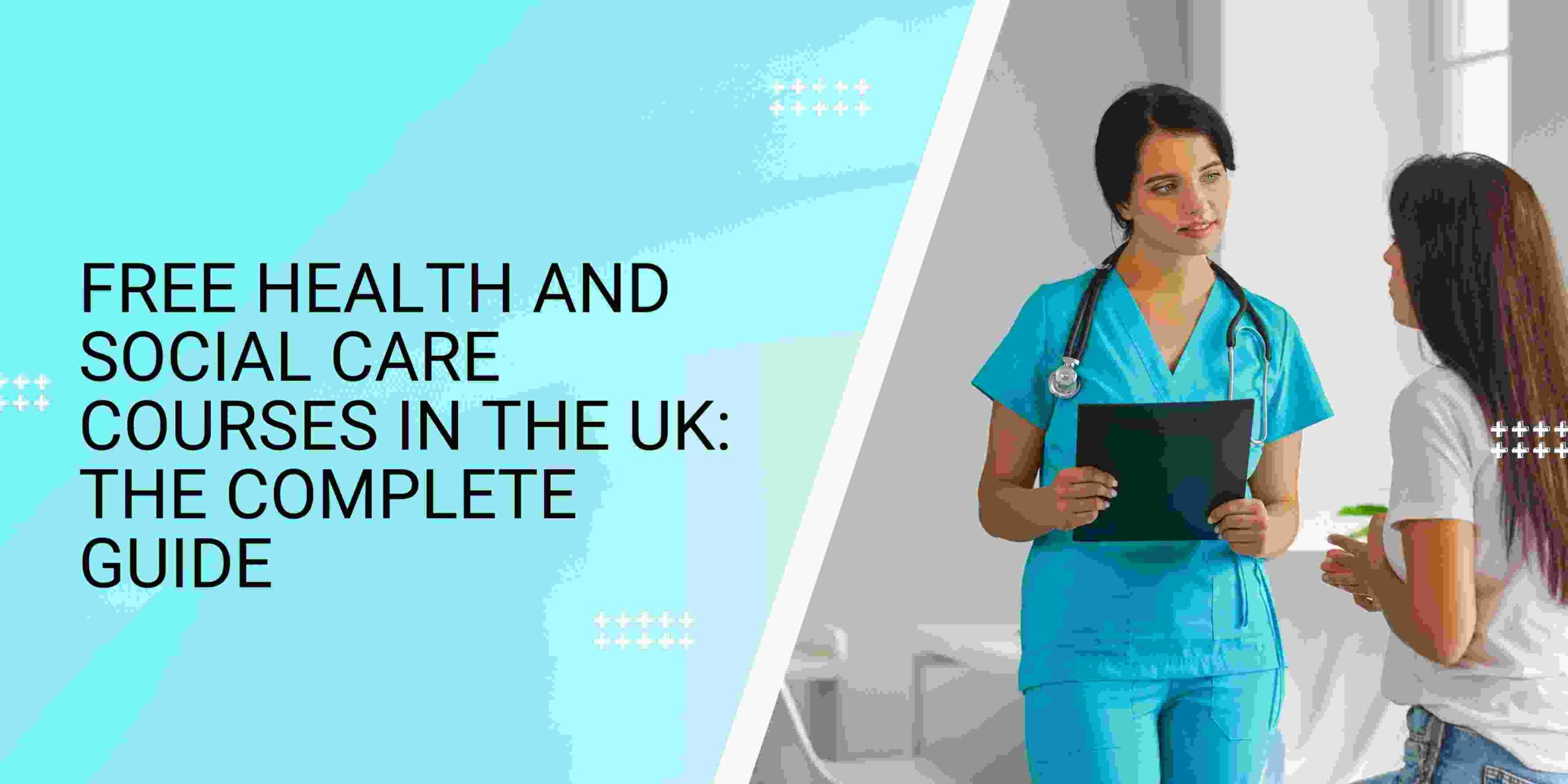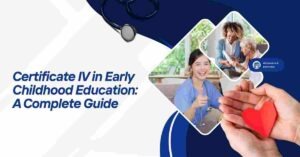Table of Contents
-
Introduction
-
What Is Health and Social Care?
-
Why Take a Health and Social Care Course?
-
Can You Study Health and Social Care for Free in the UK?
-
Types of Free Health and Social Care Courses
-
Government-Funded Free Courses
-
Free Online Courses with Certificates
-
Eligibility Criteria for Free Courses
-
Accredited Providers in the UK
-
Course Content and Modules
-
How to Enrol in a Free Course
-
Best Platforms for Free Online Courses
-
Short Courses vs Full Diplomas
-
Free Courses for Job Seekers
-
Free Training for Existing Care Workers
-
How Free Courses Help Your Career
-
Pathways After Free Courses
-
Skills Developed
-
Real-Life Success Stories
-
Common FAQs
-
Conclusion
1. Introduction
Health and social care is one of the UK’s most essential sectors, employing millions of professionals and supporting some of the most vulnerable members of society. Whether you’re just starting out or looking to enhance your skills, free health and social care courses can provide the training you need — without the financial burden.
2. What Is Health and Social Care?
Health and social care combines medical and supportive services designed to:
-
Improve physical and mental well-being
-
Assist vulnerable individuals
-
Promote independence and dignity
It covers areas such as nursing, personal care, social work, child protection, mental health, disability support, and elderly care.
3. Why Take a Health and Social Care Course?
Completing a course in this field can help you:
-
Enter a rewarding career
-
Support your community
-
Improve job prospects
-
Qualify for senior roles
-
Understand safeguarding laws
-
Learn ethical care practices
-
Fulfil employer or CQC requirements
4. Can You Study Health and Social Care for Free in the UK?
Yes. Thanks to:
-
Government funding
-
Local councils
-
Charities
-
Online learning platforms
…you can access a wide range of free health and social care courses — many of which include certification and lead to employment or further study.
5. Types of Free Health and Social Care Courses
You can find free courses in areas like:
-
Introduction to health and social care
-
Infection control and prevention
-
Dementia awareness
-
Mental health support
-
End-of-life care
-
Safeguarding adults and children
-
Nutrition and hydration
-
Autism awareness
-
Substance misuse
-
First aid and CPR
-
Communication in care settings
-
Equality, diversity, and inclusion in care
Some are CPD-certified, while others may be Level 1 to Level 3 NVQ units.
6. Government-Funded Free Courses
The UK government provides free courses through:
-
Free Courses for Jobs (England)
-
Adult Education Budget (AEB)
-
Universal Credit training support
-
Sector-Based Work Academy Programmes (SWAPs)
-
Apprenticeships
These initiatives are designed to upskill adults, support jobseekers, and meet the growing demand in the care sector.
7. Free Online Courses with Certificates
Many learners prefer online flexibility. You can study at your own pace, anywhere in the UK. Reputed platforms offering free online courses with certificates include:
-
Vision2learn
-
The Skills Network
-
FutureLearn
-
OpenLearn by Open University
-
Reed Courses (Free Section)
-
Alison
-
Coursera (Free trials)
Certificates from accredited providers help with CV building and job applications.
8. Eligibility Criteria for Free Courses
Eligibility may vary based on:
-
Age: Typically 19+
-
Residency: UK resident
-
Income: Low-income individuals or benefit recipients
-
Qualifications: Those without Level 3 or higher
-
Employment status: Unemployed or working in low-wage jobs
Always check with the course provider or your local college to confirm eligibility.
9. Accredited Providers in the UK
Look for providers accredited by:
-
NCFE CACHE
-
City & Guilds
-
TQUK
-
Skills for Care
-
Pearson (Edexcel)
Training offered by these bodies is recognised by employers, regulatory authorities, and professional bodies.
10. Course Content and Modules
While course content varies, common topics include:
-
Safeguarding principles
-
Health and safety in care
-
Understanding duty of care
-
Person-centred care
-
Infection prevention
-
Mental capacity and consent
-
Communication skills
-
Equality and anti-discrimination
-
Record-keeping and GDPR
-
Basic clinical care skills
Courses may include video lectures, downloadable guides, case studies, multiple-choice quizzes, and practical tasks.
11. How to Enrol in a Free Course
Steps typically involve:
-
Choose a course provider
-
Check eligibility requirements
-
Complete the online application
-
Submit identity documents
-
Begin your course (often within 48–72 hours)
Many online providers also assign a tutor or advisor to support your learning.
12. Best Platforms for Free Online Courses
1. Vision2learn
Fully funded Level 2 courses with certification.
2. The Skills Network
Government-funded, tutor-supported, CPD-certified courses.
3. FutureLearn
Short courses from UK universities like Coventry, King’s College, and the Open University.
4. OpenLearn (Open University)
Free introductory courses on mental health, end-of-life care, dementia, and more.
5. Alison
Free modules with affordable certificates.
13. Short Courses vs Full Diplomas
Short Courses:
-
Duration: 1–4 weeks
-
Focused on a specific topic
-
Good for CPD or introduction
Full Diplomas:
-
Duration: 3–12 months
-
Leads to recognised qualifications
-
Suitable for new careers or promotions
-
May require workplace placement
14. Free Courses for Job Seekers
Jobcentre Plus often refers candidates to free training through:
-
SWAPs (Sector-Based Work Academy Programmes)
-
Local colleges
-
Private training providers
These courses often include:
-
Training
-
Work placement
-
Guaranteed job interviews
Careers in care are part of the UK’s skills shortage list, so employers are keen to recruit trained staff.
15. Free Training for Existing Care Workers
Care workers looking to upskill can access:
-
CPD modules (continuous professional development)
-
Funded NVQ Level 2 or 3 Diplomas
-
Apprenticeship pathways
-
Mandatory training updates (e.g., moving and handling, safeguarding refreshers)
Employers may be eligible for Workforce Development Funding.
16. How Free Courses Help Your Career
Benefits of completing a free course:
-
Stronger CV
-
Improved confidence
-
Meeting mandatory training standards
-
Eligibility for promotion
-
Entry into more specialised care roles
-
Readiness for regulated work (CQC)
17. Pathways After Free Courses
You can progress to:
-
NVQ Level 3 Diploma in Adult Care
-
Level 4 and 5 leadership courses
-
Nursing associate apprenticeships
-
University degrees (healthcare, nursing, social work)
-
Care home team leader or supervisor roles
18. Skills Developed
-
Empathy and person-centred care
-
Communication and listening
-
Time management
-
Confidentiality and GDPR awareness
-
Infection control
-
Risk assessment
-
Ethical care delivery
These are essential for roles in residential, domiciliary, or community care settings.
19. Real-Life Success Stories
Rachel, 41, Leeds:
After losing her job during the pandemic, she took a free Level 2 Health and Social Care course through Vision2learn. Within 3 months, she secured a job in a care home and is now pursuing Level 3 with employer funding.
Imran, 28, Birmingham:
He completed 4 short CPD courses via OpenLearn and used them to strengthen his NHS job application as a mental health support worker.
20. Common FAQs
Are free courses really free?
Yes, if you meet the eligibility criteria. Some platforms offer optional paid certificates.
Can I get a job with just a free course?
Yes, especially if the course is accredited and focused on essential skills.
Can I do the course if I’m not in the UK?
Some online platforms are accessible worldwide, but funded courses are limited to UK residents.
Is there a deadline to enrol?
Many free courses have rolling admission, but funded places may be limited.
Can I study more than one course?
Yes, but check with your provider regarding simultaneous enrolment rules.
21. Conclusion
Free health and social care courses are a gateway to a meaningful and stable career in one of the UK’s most vital industries. Whether you’re a jobseeker, career changer, or current care worker, there’s a free course that suits your needs.
With so many flexible, online, and government-funded options available, there’s no excuse not to start building your career in care — today.
Start by exploring courses from reputable platforms, check your eligibility, and take that first step toward transforming lives, including your own.
Read More:







